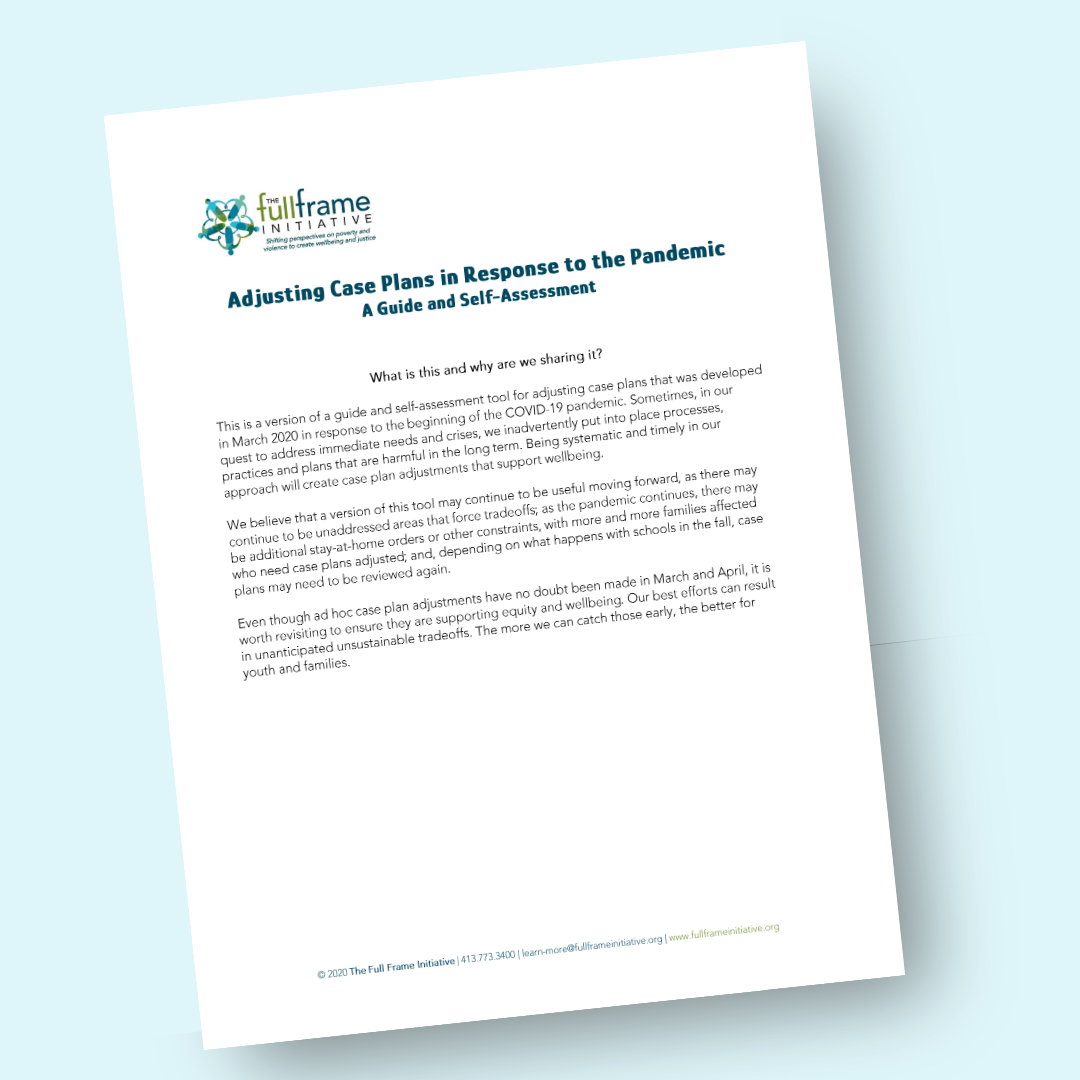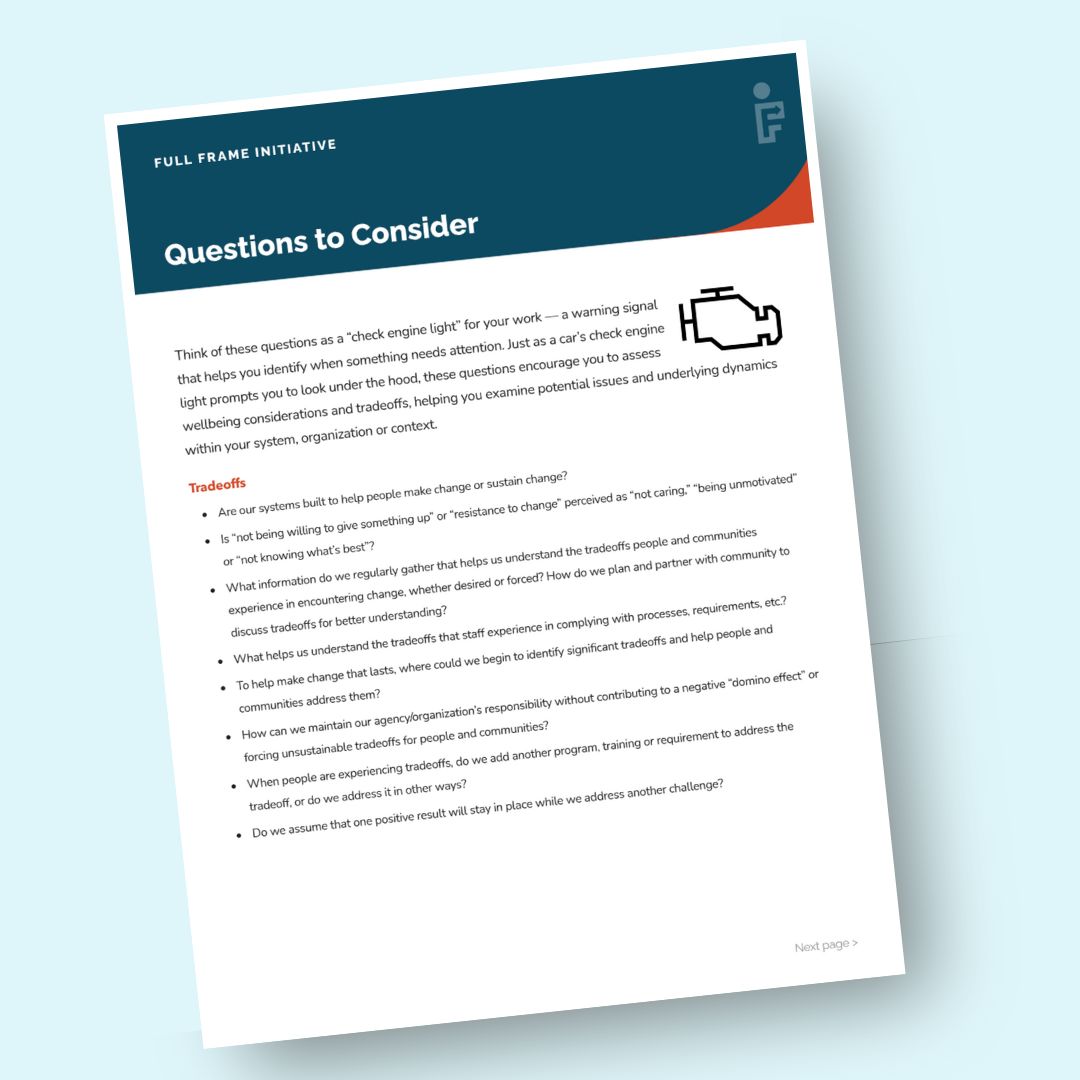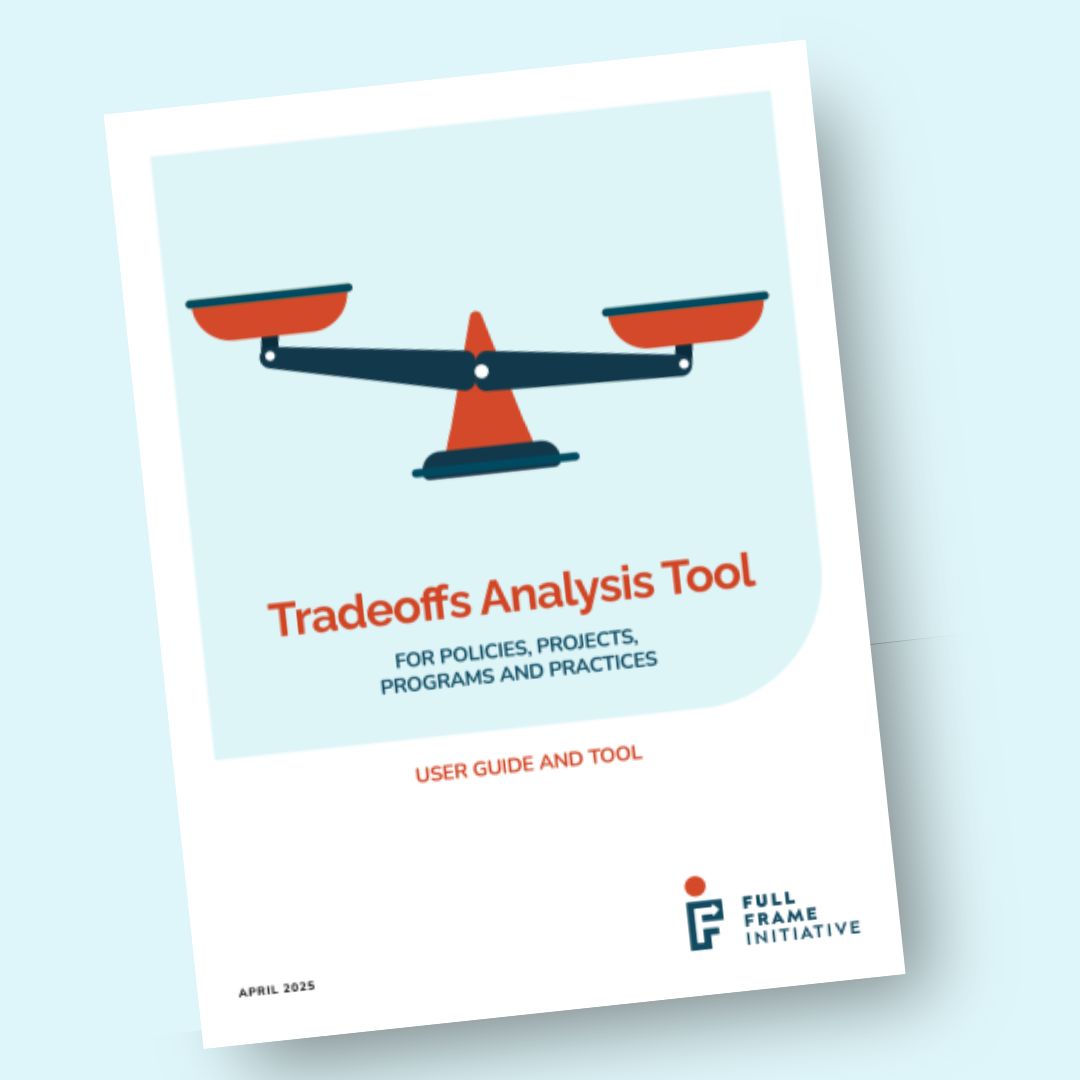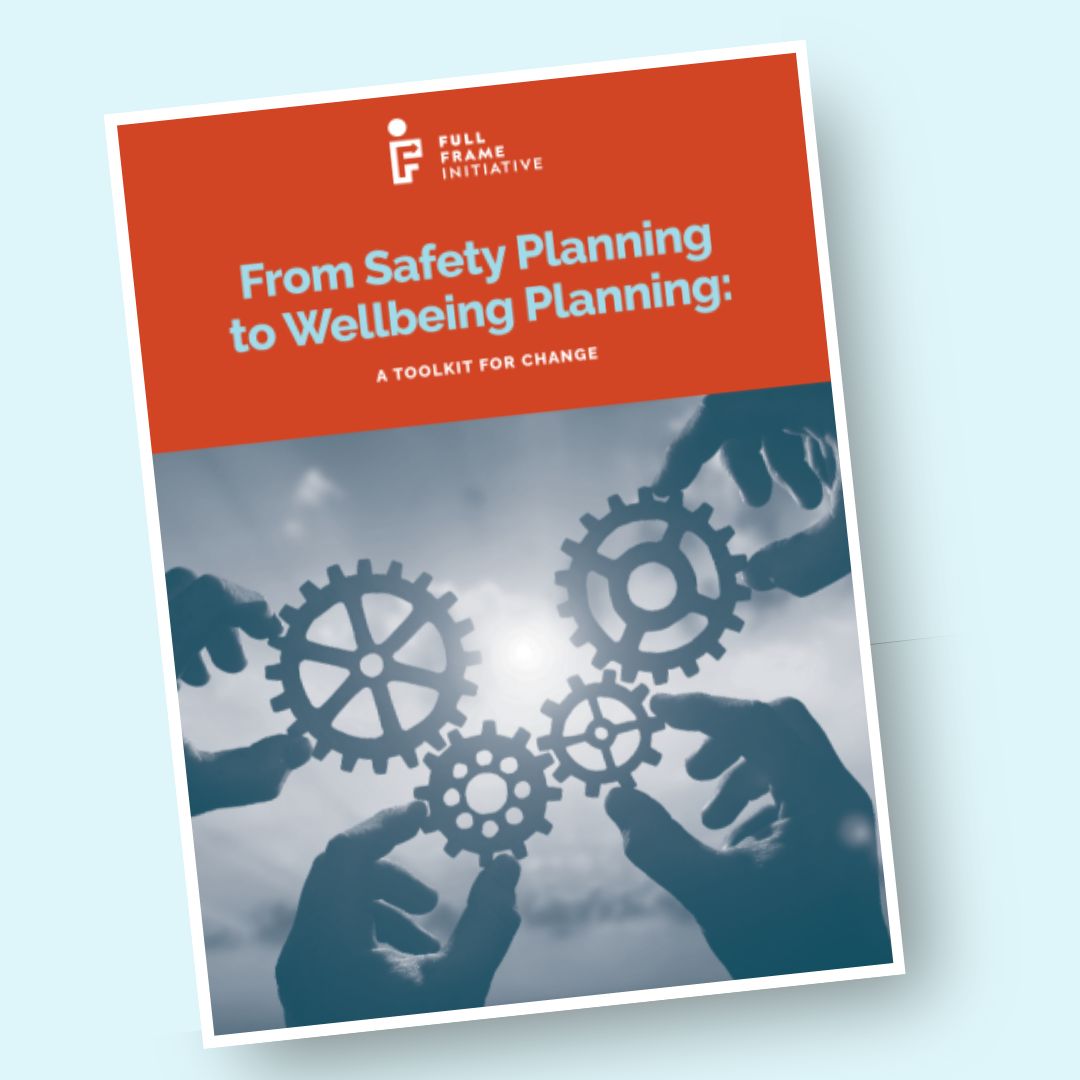
This guide and self-assessment tool for adjusting case plans was developed in March 2020 in response to the beginning of the COVID-19 pandemic. Sometimes, in our quest to address immediate needs and crises, we inadvertently put into place processes, practices and plans that are harmful in the long term. Being systemic and timely in our approach will create plan adjustments that support wellbeing.

This tool offers a set of questions related to tradeoffs and the Five Domains of Wellbeing that you can use as a “check engine light” for you and your work.

Use this tool to identify how a specific policy, project, program or practice will impact different stakeholders’ wellbeing, allowing you to anticipate and address unsustainable tradeoffs.

Learn how domestic violence practitioners can shift from a singular focus on short-term safety toward increasing survivor safety in the context of creating opportunities to support long-term wellbeing.